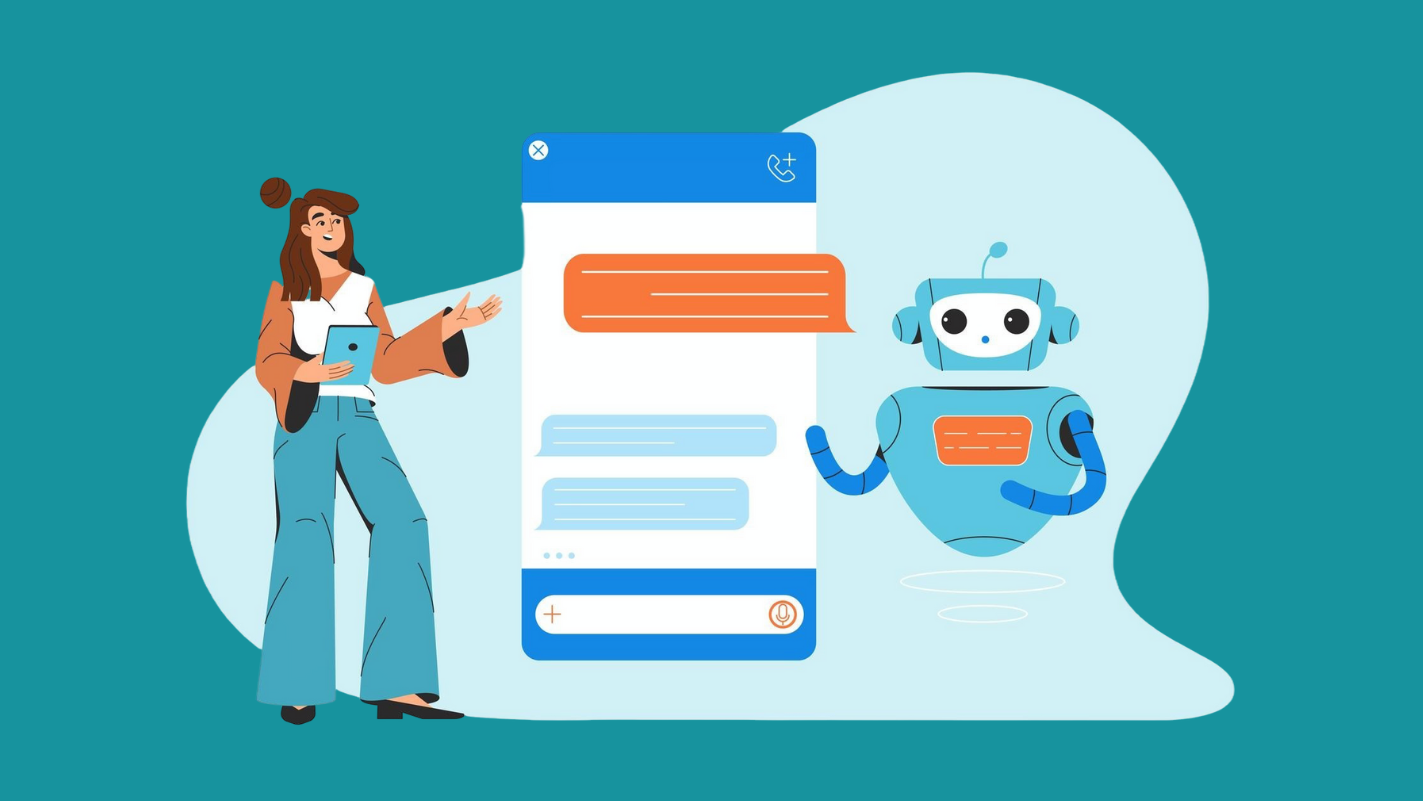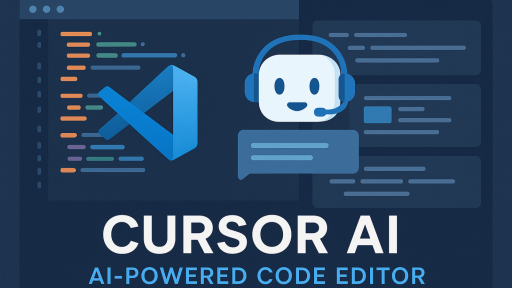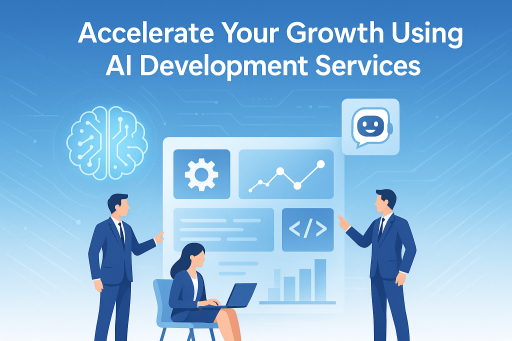In today’s rapidly evolving digital landscape, businesses are increasingly turning to artificial intelligence to enhance customer engagement and streamline operations. Among these technologies, Natural Language Processing (NLP) plays a crucial role in enabling machines to understand and respond to human language. This article explores the world of NLP-based chatbot development, delving into its core concepts, benefits, technical frameworks, and future trends, all from a third-person perspective with a friendly tone.
What is NLP-Based Chatbot Development?
NLP-based chatbot development is a specialized field within AI that combines machine learning with linguistic algorithms to create chatbots capable of understanding, interpreting, and generating human language. By leveraging NLP, these chatbots can engage in meaningful conversations with users, answer queries, and provide support around the clock. The integration of sophisticated algorithms allows these systems to continually improve, adapting to different contexts and user needs.
This innovative technology stands apart from rule-based systems by offering a more dynamic and flexible way to interact with customers. Instead of relying on predefined responses, NLP-enabled chatbots analyze user input in real time, making them suitable for complex interactions across various industries.
The Rise of Conversational AI in Business
The advent of conversational AI has transformed the way companies communicate with their customers. As businesses strive to enhance user experience and operational efficiency, chatbots powered by NLP have emerged as a game-changing solution. They offer a friendly, accessible interface that can handle multiple customer queries simultaneously, reducing wait times and improving satisfaction.
Across industries—from retail to finance—chatbots are becoming a vital part of digital strategy. Their ability to interpret nuanced human language makes them ideal for handling a diverse range of interactions. Whether a customer is looking for product information or troubleshooting support, these systems can provide personalized and timely responses.
Key Services in NLP Chatbot Development
For companies looking to integrate conversational AI into their operations, understanding the range of available services is essential. A typical service package in this domain may include:
Custom Solutions for Unique Business Needs
Businesses often require tailored solutions to address their specific challenges. Providers offer custom NLP chatbot development services that focus on building chatbots uniquely adapted to a company’s branding, industry requirements, and customer interaction patterns. These bespoke solutions ensure that the chatbot integrates seamlessly with existing systems and scales as business demands evolve.
Cost Considerations and Budget Planning
Implementing AI solutions can vary widely in cost depending on complexity and desired functionality. An important factor for decision-makers is understanding the cost of NLP chatbot development. Providers typically offer transparent pricing models that factor in everything from design and development to ongoing maintenance and updates.
Expert Consultation and Partner Selection
Given the complexities of AI development, many organizations opt for expert guidance. Hiring an NLP chatbot development company allows businesses to tap into specialized expertise that can streamline the integration process and ensure the technology meets strategic goals.
Benefits of NLP Chatbots Across Industries
NLP-based chatbots offer several tangible benefits, making them an attractive proposition for companies across various sectors.
Enhanced Customer Support
One of the most significant advantages of NLP-enabled chatbots is their ability to provide prompt and effective support. For instance, many companies are turning to an AI-powered chatbot for customer support that can handle routine inquiries and escalate complex issues to human representatives. This not only improves response times but also reduces the workload on support teams.
Improving E-Commerce Interactions
In the competitive world of online retail, customer engagement is critical. A conversational AI chatbot for e-commerce can offer personalized shopping recommendations, assist with order tracking, and answer product-related queries, thereby enhancing the overall shopping experience and boosting conversion rates.
Revolutionizing Healthcare Communication
The healthcare industry has also seen the transformative impact of NLP. An AI chatbot for healthcare industry using NLP is capable of providing patients with timely information about symptoms, appointment scheduling, and basic health advice, all while ensuring data security and compliance with healthcare regulations.
Expanding Global Reach
For businesses operating on an international scale, overcoming language barriers is essential. Multi-language NLP chatbot development enables companies to offer support in several languages, ensuring that users from different regions receive a consistent and personalized experience.
Technical Aspects and Frameworks for NLP Chatbots
Developing an efficient NLP-based chatbot requires a deep understanding of both AI technologies and language models. The technical journey involves selecting the right algorithms, frameworks, and integration methods.
Innovative Solutions for Complex Challenges
Providers are constantly refining natural language processing chatbot solutions to address the diverse challenges of interpreting human language. This involves leveraging advanced algorithms and neural networks that can learn from vast datasets, ensuring the chatbot’s responses are both accurate and contextually appropriate.
Combining Machine Learning and NLP
Modern development practices encourage companies to develop AI chatbot with NLP and machine learning capabilities. This combination allows the system to learn from each interaction, continually improving its ability to interpret user intent and generate natural responses. The iterative learning process is crucial for maintaining high-quality interactions over time.
Leveraging Top AI Frameworks
The backbone of any robust chatbot system is the technological framework that supports it. By adopting top AI frameworks for NLP chatbot creation, developers can ensure that their solutions are scalable, efficient, and compatible with the latest advancements in AI research. These frameworks not only speed up the development process but also provide tools for continuous optimization.
Integration, Implementation, and Multi-Language Capabilities
Successful deployment of an NLP-based chatbot requires seamless integration with existing business systems and platforms.
API Integration for Enhanced Functionality
To ensure a smooth operation, businesses must focus on NLP chatbot API integration for businesses. APIs enable the chatbot to communicate with other software systems, such as customer relationship management (CRM) tools, databases, and e-commerce platforms. This integration is key to automating workflows and providing real-time updates across systems.
Multi-Language Support for Global Accessibility
As mentioned earlier, the ability to support multiple languages is crucial for global businesses. Implementing multi-language NLP chatbot development allows organizations to cater to a diverse user base, offering localized experiences that respect cultural nuances and language variations.
Future Trends in NLP Chatbot Development
The future of NLP-based chatbot development is filled with exciting possibilities that promise to further revolutionize customer interaction.
Advancements in Voice Technology
One emerging trend is the development of more interactive and intuitive systems. The integration of voice recognition technologies is paving the way for a voice-enabled NLP chatbot for enterprises. Such systems allow users to interact with chatbots through natural spoken language, opening up new avenues for accessibility and engagement.
SaaS-Based Solutions
As businesses seek agile and scalable solutions, many are turning to cloud-based models. SaaS chatbot development using NLP and AI represents a growing trend where companies can leverage robust chatbot platforms hosted in the cloud. These solutions offer the advantages of lower upfront costs, ease of updates, and the flexibility to scale according to business needs.
Selecting the Right Partner for NLP Chatbot Solutions
Choosing a reliable and experienced partner is crucial for the success of any chatbot project.
Evaluating Industry Leaders
Organizations looking to invest in this technology often begin by researching the best NLP chatbot development companies. These companies typically showcase a portfolio of successful projects, demonstrate technical expertise, and offer customer-centric support throughout the development lifecycle.
Guidance on the Development Process
For those new to the field, it can be helpful to start with comprehensive guides on how to build an NLP chatbot for business. These resources provide step-by-step insights into the design, development, and deployment phases, ensuring that companies understand what to expect at each stage of the project.
Case Studies and Examples
While theoretical knowledge is essential, real-world examples provide practical insights into how NLP-based chatbots are making a difference.
A Retail Revolution
Consider a large online retailer that integrated a chatbot to manage customer queries. By implementing conversational AI chatbot for e-commerce, the retailer was able to offer personalized shopping assistance, handle a surge in customer inquiries during peak shopping seasons, and improve overall customer satisfaction. The chatbot seamlessly integrated with the retailer’s inventory and order management systems, offering real-time support and boosting sales.
Enhancing Patient Care in Healthcare
A leading hospital group adopted an AI solution by deploying an AI chatbot for healthcare industry using NLP. The chatbot assisted patients in scheduling appointments, provided preliminary medical advice based on symptom input, and offered a reliable channel for follow-up care information. This implementation not only reduced administrative burdens but also improved patient experience by ensuring quick access to essential services.
Streamlining Customer Support in Finance
In the financial sector, a bank implemented an AI-powered chatbot for customer support to handle routine inquiries, such as balance inquiries and transaction details. The solution enabled the bank to maintain high service standards even during high call volumes, thereby reducing operational costs and enhancing customer trust.
Overcoming Implementation Challenges
While the benefits of NLP-based chatbots are numerous, companies may face challenges during implementation. Some common hurdles include:
- Data Quality and Training: Effective NLP systems require high-quality datasets. Companies must invest time in collecting and annotating data that reflects diverse customer interactions.
- Integration Complexities: Ensuring seamless integration with existing systems can be challenging, especially for legacy platforms. A well-planned API strategy is essential.
- User Adoption: Even the most advanced chatbot may face resistance from users accustomed to traditional support channels. Businesses need to implement change management strategies and educate customers on the benefits of the new system.
- Regulatory Compliance: Especially in industries like healthcare and finance, adherence to data protection and privacy regulations is paramount. Robust security measures must be integrated into the chatbot solution.
Technical Best Practices and Continuous Improvement
For organizations looking to stay ahead in the chatbot arena, adopting technical best practices is critical. Continuous monitoring and regular updates are key to ensuring that the chatbot remains responsive, accurate, and aligned with evolving user needs. Regular feedback loops, performance analytics, and periodic retraining of models help maintain a high standard of service.
Summing Up the Advantages of Modern NLP Chatbots
The evolution of NLP-based chatbot development has provided companies with a versatile tool to enhance customer interaction, streamline processes, and reduce operational costs. Through a combination of advanced algorithms, machine learning, and seamless system integration, these chatbots offer a level of personalization and efficiency that was once unimaginable.
By offering services such as custom NLP chatbot development services and addressing critical business challenges, companies can achieve substantial competitive advantages. The integration of state-of-the-art technologies ensures that chatbots are not only responsive and intuitive but also adaptable to the changing dynamics of global markets.
Final Thoughts
The journey towards integrating conversational AI into business operations is marked by continuous innovation and adaptation. With a focus on quality, usability, and scalability, NLP-based chatbot development is setting new standards in digital customer engagement. As businesses across sectors—from retail and healthcare to finance and beyond—embrace this technology, the future of interactive, intelligent communication looks promising.
Organizations aiming to leverage these advancements are encouraged to explore a range of solutions—from understanding the natural language processing chatbot solutions available to learning how to build an NLP chatbot for business successfully. By carefully evaluating providers, utilizing expert insights, and remaining adaptable to technological shifts, companies can harness the full potential of conversational AI.
In conclusion, the impact of NLP on chatbot development is both profound and far-reaching. With trends like voice-enabled NLP chatbot for enterprises and SaaS chatbot development using NLP and AI emerging on the horizon, the potential for further innovation is vast. This evolution not only enhances customer experience but also drives operational excellence, making it a key investment for forward-thinking organizations.





